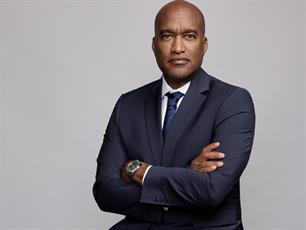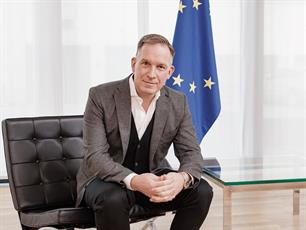Holmes Report 22 Aug 2013 // 7:59AM GMT
After graduating from Cardiff University and taking a job with a London consultancy I realized how hard it was to make a career in Britain for a Lithuanian citizen of Russian origin. So when an international PR agency with a network in Eastern Europe made me a job offer I decided to take a risk and step into the world of Russian PR, conceiving a plan at some point to start my own PR agency.
At first it was not an easy road, but now with seven years gone I can say that I am proud of the achievements and insights that enable me to discuss some of the interesting features that are typical of the Russian PR industry.
(1) In contrast to their many foreign counterparts Russian journalists do not trust citizen journalists. According to our research conducted together with Oriella PR Network, in many countries “citizen journalists” and traditional journalists enjoy the same trust level. However there are those – journalists from Great Britain (3%), Sweden (2%), New Zealand (1%) and Russia (0%) – who share a different viewpoint. At the same time journalists from France (58%), India (43%) and China (37%) maintain that citizen journalists and staff journalists should be equally trusted.
(2) In Russia scientific and technical experts are trusted the most whereas PR directors and marketing directors are trusted the least. Marketing directors are trusted less than state officials.
(3) Today’s Russian PR manager is 44% a blogger, 13% a web-designer and 6% an IT-specialist. PR managers are gradually becoming bloggers for their companies and acquire new skills in the social media and digital space.
(4) One of the key issues in the Russian PR industry is “non-transparency” of big companies. PR agencies in Russia do not normally disclose information about their communications process with the media. Lack of information consequently creates misunderstanding between the client and the agency. Also, fee policy can vary significantly.It is often unclear what exactly determines the costs of PR services and how they can be justified.
(5) Lack of universal standards within the industry. Even though there are a number of local associations uniting the key PR players there is an absence of clear standards which can help to evaluate the quality of provided PR services. This in turn has a negative impact on the reputation of home-grown PR agencies operating in Russia. As a result many clients often turn to international PR chains that have local offices instead as they feel that affiliation with the global PR brand is the ultimate guarantee of high quality.
(6) There are two types of PR agencies in Russia: big international brands and relatively small businesses. Well-known international agencies offer stability but set a higher rate for their services. Small businesses are often less consistent quality-wise and do not have enough English-speaking managers. We at Buman Media believe we have found a niche, and operate in so-called the "golden mean” zone: as a small-size forward looking agency with professional English-speaking managers. This strategy not only kept us afloat during the financial crisis of 2009 but has enabled us to grow since then.
(7) The 'story' format is not very popular with the Russian media, whereas news and facts are. If in the West it is quite normal to negotiate a 600 word article instead of putting the same piece into 250 words, talking to the local media can often be a very painful and time-consuming process.
(8) Companies in Russia do not strictly adhere to their communications strategy as it is the case in the West. Action is often dictated by agenda, and the client’s mood swings.
(9) Trade exhibitions in Russia are not the best opportunity to network with the journalists. As a result special friendly press events prove to be far more effective.
(10) In Russia, client services go beyond the peril – the best PR consultants are mentors, sounding-boards and even drinking buddies. It can be hard for those who have grown accustomed to the Western evenhanded style of partnership; still working with Russians is always interesting and never boring, they think outside the cliché box and set non-standard goals. You always have to be ready for the unexpected, whether it is ordering pink helicopter for the client in the middle of the night or asking pâtissière to make a chocolate version of the nuclear power station.


































.jpg)






.tmb-135x100.jpg)










